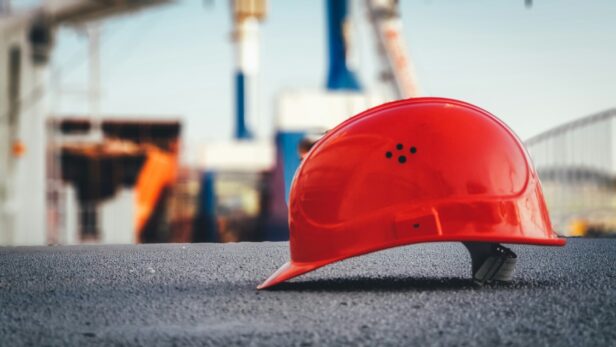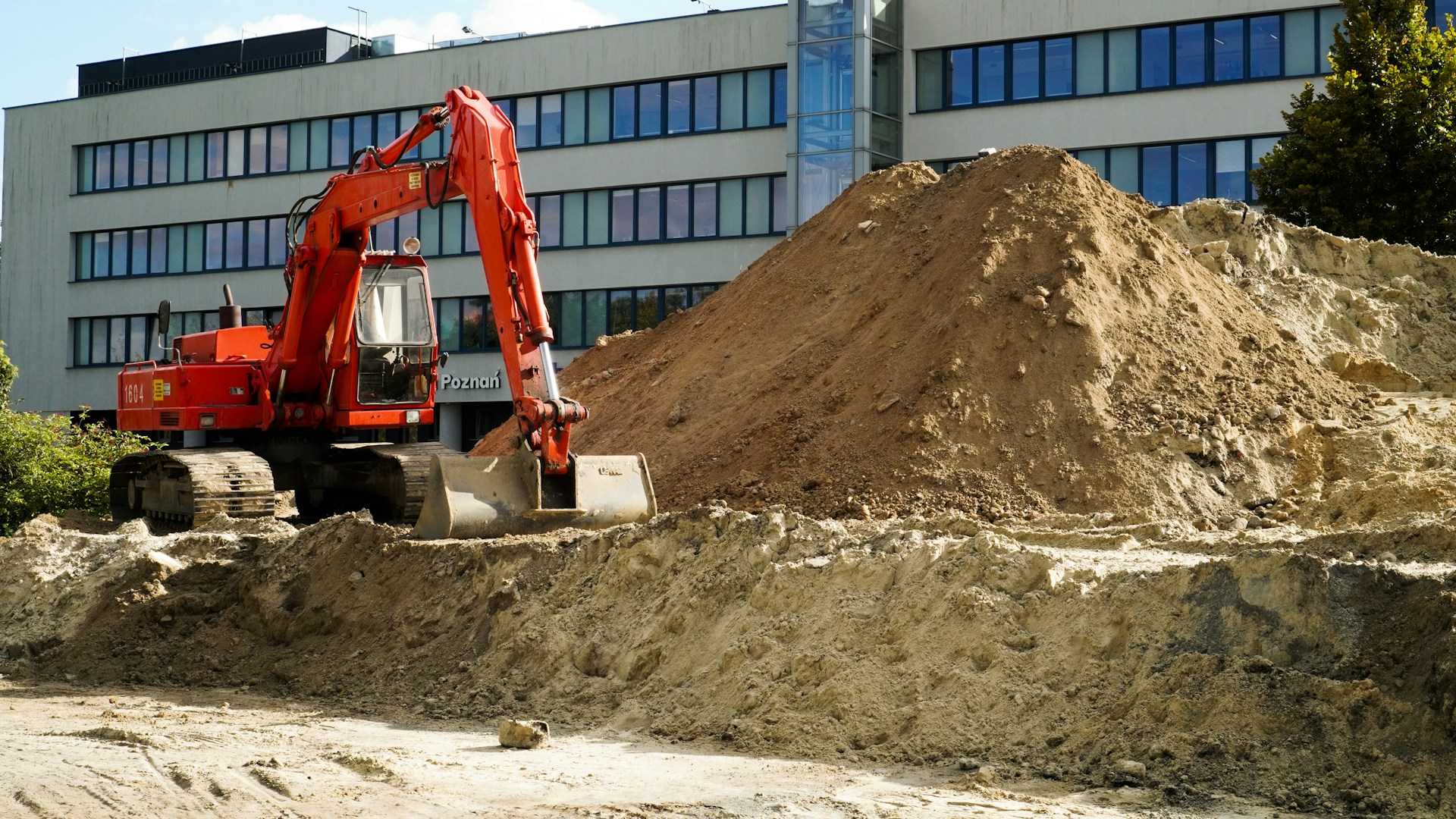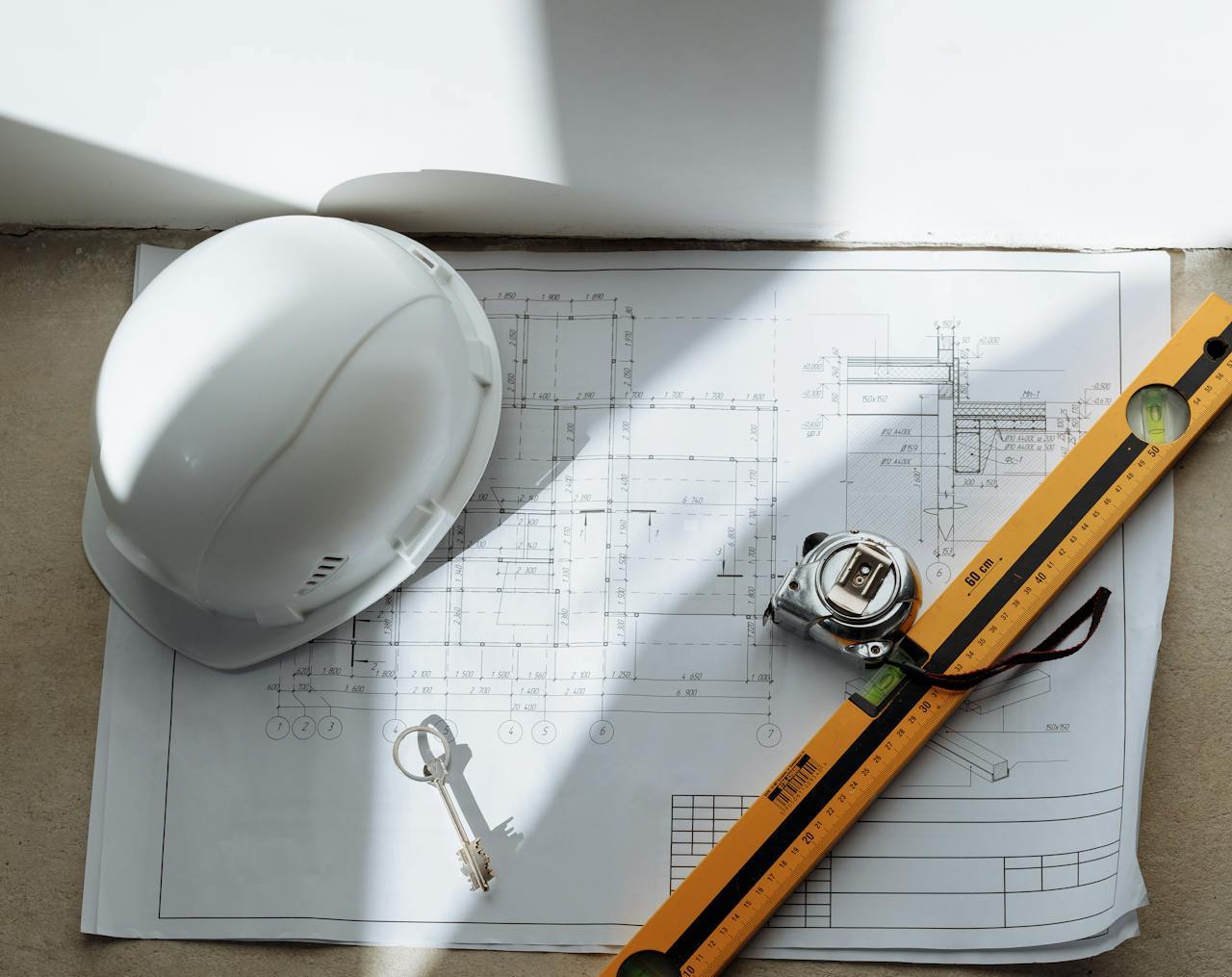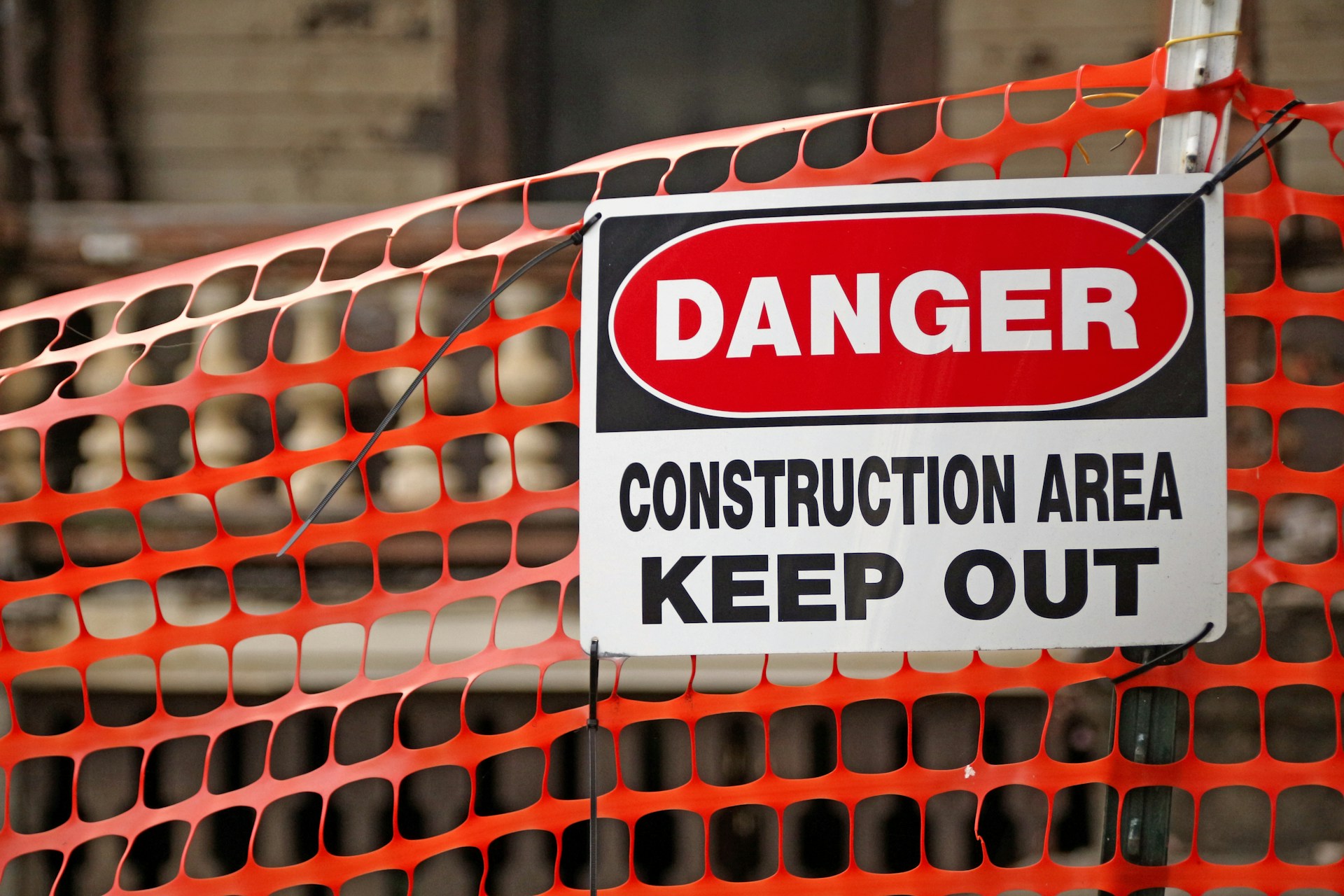A petrochemical plant running at 98% uptime generates $2.3 million more annual revenue than one operating at industry average rates. This performance gap often comes down to construction quality and ongoing maintenance precision.
Industrial construction companies plan, build, and maintain facilities that power core industries across energy and resources markets. They deliver comprehensive services spanning preconstruction planning and engineering through modular construction, site execution, and ongoing maintenance programs designed to maximize operational reliability.
Which Sectors And Facility Types Do Industrial Construction Companies Serve?

Industrial construction companies work across diverse industrial manufacturing and energy sectors that form the backbone of modern commerce. We coordinate projects in agricultural chemicals, mining operations, nuclear facilities, oil and gas installations, petrochemical complexes, power generation plants, and renewable energy infrastructure. Each sector demands specialized knowledge of regulatory frameworks, safety protocols, and operational requirements.
Manufacturing plants represent a significant portion of our portfolio, requiring structural systems that support heavy equipment loads and complex process flows. These facilities often incorporate specialized ventilation, material handling systems, and compliance features for environmental and safety regulations. We design layouts that optimize production workflows while maintaining access for maintenance and future expansion.
Warehouses and distribution centers require different considerations, focusing on clear span construction, high bay storage systems, and efficient loading dock configurations. Modern facilities integrate automated systems for inventory management and require robust electrical infrastructure to support advanced logistics technologies. We coordinate structural designs that accommodate heavy floor loads while providing flexible space configurations.
Energy sector facilities present unique challenges with extreme operating conditions and stringent safety requirements. Oil and gas installations demand explosion-proof construction methods, specialized piping systems, and emergency response capabilities. Nuclear facilities require precision construction with extensive documentation and quality control measures. Power plants, whether traditional or renewable, need robust foundations and specialized equipment support systems.
Code compliance drives many design decisions across all facility types. We coordinate with regulatory agencies early in the planning process to ensure designs meet current standards for environmental protection, worker safety, and operational efficiency. This proactive approach reduces change orders and keeps projects on schedule while maintaining the high-load structures and workflow optimization these industries require.
What Services And Delivery Methods Should You Expect?
Industrial contractors provide comprehensive service portfolios that span the complete project lifecycle. We approach each engagement with construction management capabilities that integrate preconstruction services, engineering support, and specialized execution methods tailored for complex industrial environments.
Planning And Preconstruction Services
Preconstruction forms the foundation of successful industrial projects through detailed planning, budgeting, and cost estimating. We conduct constructability reviews during design phases to identify potential conflicts before they impact schedules or budgets. Our teams develop logistics planning strategies that account for heavy equipment deliveries, material staging requirements, and site access constraints typical in industrial settings.
Engineering support during preconstruction includes value engineering assessments and design coordination with process engineers. This collaborative approach ensures that structural, mechanical, and electrical systems integrate seamlessly with production equipment and operational workflows.
Core Construction And Fabrication Methods
We deliver industrial projects through modular construction and offsite fabrication methods that improve quality control and reduce on-site installation time. Prefabricated components, including process equipment skids, piping assemblies, and structural steel modules, arrive ready for integration into larger facility systems.
Site execution involves coordinating multiple trades while maintaining operational safety around existing facilities. Our self-performing capabilities allow us to handle critical path activities directly, including heavy rigging, steel erection, and process piping installation. This approach provides better schedule control and accountability for specialized industrial work.
People and craft labor solutions address the skilled workforce requirements of industrial construction. We maintain certified welders, millwrights, and equipment specialists who understand the precision demands of process facilities and manufacturing environments.
Maintenance And Ongoing Support
Industrial contractors extend their services beyond initial construction through maintenance and turnarounds programs. These services include scheduled equipment maintenance, emergency repairs, and facility modifications that support changing production requirements.
Turnkey and integrated delivery models combine design, construction, and commissioning under single-source responsibility. This approach streamlines communication and provides clear accountability for complex industrial projects that require coordination between multiple engineering disciplines.
Many contractors now incorporate sustainable construction practices and digital planning tools to enhance project outcomes. Digital twin technology and model-based planning help identify potential issues early while supporting better decision-making throughout the construction process. These approaches contribute to more predictable project delivery and improved long-term facility performance.
How Do Industrial Contractors Reduce Risk, Cost, And Schedule?
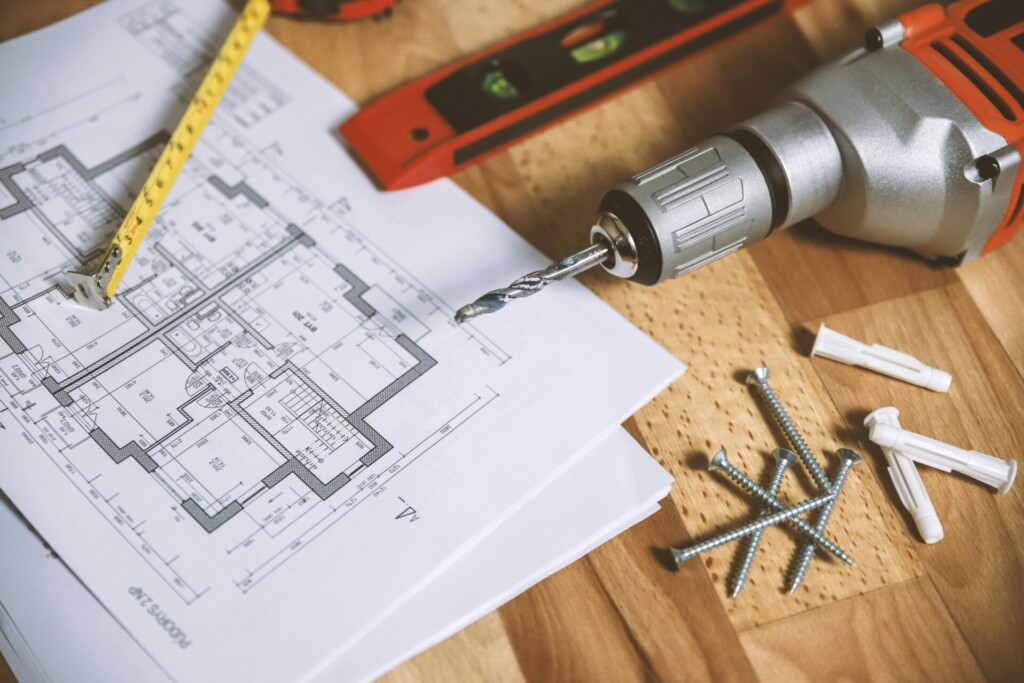
Industrial contractors use systematic approaches to control project variables and deliver reliable outcomes. We coordinate holistic teams that bring accountability and clear communication workflows to every phase. These integrated approaches reduce the delays and cost overruns that plague fragmented project delivery.
Holistic Team Integration For Better Communication
We build project teams that combine design, engineering, and construction expertise under unified management. This integration eliminates the communication gaps that cause rework and delays in traditional delivery methods. Teams work from shared models and data sets, ensuring everyone operates with the same information.
Coordinated teams catch conflicts before they reach the field. When engineers, fabricators, and field crews collaborate early, we identify installation challenges during planning rather than during execution. This proactive approach prevents costly field changes and keeps projects on schedule.
Early Planning And Value Engineering Controls Scope
We conduct value engineering during preconstruction to identify cost-effective solutions before designs become fixed. Early planning sessions review every system and material choice against project requirements and budget targets. This process curbs scope creep by establishing clear functional priorities from the start.
Value reviews help owners make informed choices about where to invest their budgets. We present options that balance capital costs against lifecycle performance, showing how different approaches affect both construction expenses and long-term operating costs.
Self-Performing Critical Work Increases Predictability
We self-perform critical path activities to maintain direct control over schedule and quality. Instead of relying on multiple subcontractors with varying capabilities, we handle key trades internally. This approach eliminates the coordination delays that occur when multiple parties control essential work sequences.
Self-performing also reduces the risk of subcontractor defaults or performance issues. When we control critical work directly, we can adjust resources and schedules immediately to address challenges without waiting for external parties to respond.
Modular And Offsite Methods Improve Schedule Certainty
Modular construction and offsite fabrication methods reduce on-site variables that cause delays. We fabricate components in controlled environments where weather, logistics, and quality control are predictable. Research shows that modular approaches can reduce project schedules by 20-50 percent while improving cost predictability.
Offsite fabrication allows parallel work streams that compress overall project timelines. While site preparation proceeds, we fabricate structural components and process systems in our shops. This parallel approach eliminates the sequential bottlenecks that extend traditional construction schedules.
Model-Based Planning Identifies Issues Early
We use digital models and planning tools to simulate construction sequences before breaking ground. Model-based planning reveals conflicts between systems, identifies access constraints, and optimizes installation sequences. These digital tools help us solve problems during design rather than during expensive field construction.
Advanced modeling also supports better resource planning and logistics coordination. We can optimize material deliveries, equipment placement, and crew scheduling based on detailed 3D models that show exactly how work will proceed.
Energy-Efficient Solutions Lower Operating Costs
We design and build energy-efficient systems that reduce long-term operating expenses for owners. High-performance insulation, efficient mechanical systems, and optimized building envelopes cut utility costs over the facility’s operating life. These improvements often pay for themselves through reduced energy consumption.
Durable material selections and robust system designs minimize maintenance requirements and extend equipment lifecycles. When we specify proven components and redundant systems, we reduce the risk of unexpected shutdowns that cost industrial operators significant revenue.
What Does A Typical Industrial Construction Process Include?
Industrial construction follows a structured sequence that balances speed with precision. Each phase builds on the previous one, creating facilities that meet operational demands from day one.
Early Phase: Funding Guidance And Planning
We start with funding guidance and budgeting to establish financial frameworks. This phase includes securing project approvals, determining financing structures, and aligning budgets with scope requirements. Planning and design follow with comprehensive code and zoning checks.
Design development incorporates regulatory compliance from the outset. We coordinate with local authorities to secure permits and verify that industrial zoning allows for the intended operations. This groundwork prevents costly delays later in the construction timeline.
Site Preparation And Foundation Work
Site preparation clears and levels the construction area while addressing drainage and soil stability. We conduct thorough site assessments to identify any subsurface conditions that could impact foundations. Proper preparation sets the stage for long-term structural integrity.
Foundation construction establishes the permanent base for heavy industrial equipment and structural loads. We size foundations based on equipment specifications and soil bearing capacity. Industrial facilities often require specialized foundation systems to handle dynamic loads from machinery and process equipment.
Structure And Enclosure Systems
Structural construction begins with framework installation, including columns, beams, and floor systems. We coordinate structural elements with equipment placement requirements early in the process. Industrial structures must accommodate overhead cranes, conveyor systems, and heavy machinery loads.
Building enclosure follows structural completion. This includes exterior walls, roofing systems, and weatherproofing designed for industrial environments. We select materials that withstand process conditions, chemical exposure, and temperature variations specific to each facility type.
Core Systems Installation
HVAC, electrical, and plumbing systems form the operational backbone of industrial facilities. We install these core systems with industrial-grade specifications that support continuous operation. HVAC systems handle process ventilation, temperature control, and air quality requirements.
Electrical systems include power distribution for heavy equipment, process control systems, and emergency backup power. We coordinate electrical installation with equipment vendors to ensure proper connections and startup sequences. Plumbing systems address both utility needs and process-specific requirements like compressed air, steam, or specialized fluid handling.
Finishes And Functional Fit-Out
Interior finishes focus on functionality rather than aesthetics in most industrial spaces. We install flooring systems that handle heavy traffic, chemical spills, and equipment loads. Wall finishes meet cleanability and durability standards required for industrial operations.
Functional fit-out includes equipment installation, control system integration, and final connections. We coordinate with equipment suppliers during this phase to ensure proper installation and initial testing. This work often requires specialized trades familiar with industrial processes and safety requirements.
Inspections, Testing, And Commissioning
Quality checks begin during construction but intensify as systems come online. We conduct systematic testing of all building systems before equipment startup. This includes performance verification for HVAC, electrical load testing, and plumbing pressure tests.
Commissioning ensures that all systems operate as designed and integrate properly with process equipment. For industrial facilities, commissioning includes startup procedures, performance optimization, and operator training. We verify that systems meet design specifications and can support continuous operation requirements.
Handover And Maintenance Planning
Project handover includes comprehensive documentation, warranties, and operational manuals. We provide maintenance schedules and service recommendations tailored to industrial operating conditions. Maintenance planning begins during design and continues through handover to support long-term uptime.
We transfer operational knowledge to facility management teams through training sessions and documentation review. This ensures smooth transition from construction to full production operations, minimizing startup delays and operational disruptions.
Conclusion and Next Steps

Industrial construction companies deliver complex facilities with predictable outcomes through comprehensive services spanning preconstruction planning, advanced fabrication methods, and ongoing maintenance support. These partnerships enable owners to achieve performance targets while maintaining regulatory compliance and operational uptime across demanding industrial environments.
To move your project forward effectively, start by clearly defining your sector-specific needs, performance targets, and regulatory requirements. Early contractor engagement during preconstruction phases allows for model-based planning and strategic delivery approach development. When evaluating potential partners, inquire about their modular and offsite fabrication capabilities, self-perform strengths for critical path activities, and experience with maintenance and turnaround services. Additionally, assess their commitment to sustainable construction practices that support total lifecycle value and long-term operational efficiency.
Ready to explore how we can support your industrial construction goals? Contact EB3 Construction to discuss your project requirements and delivery strategy.

